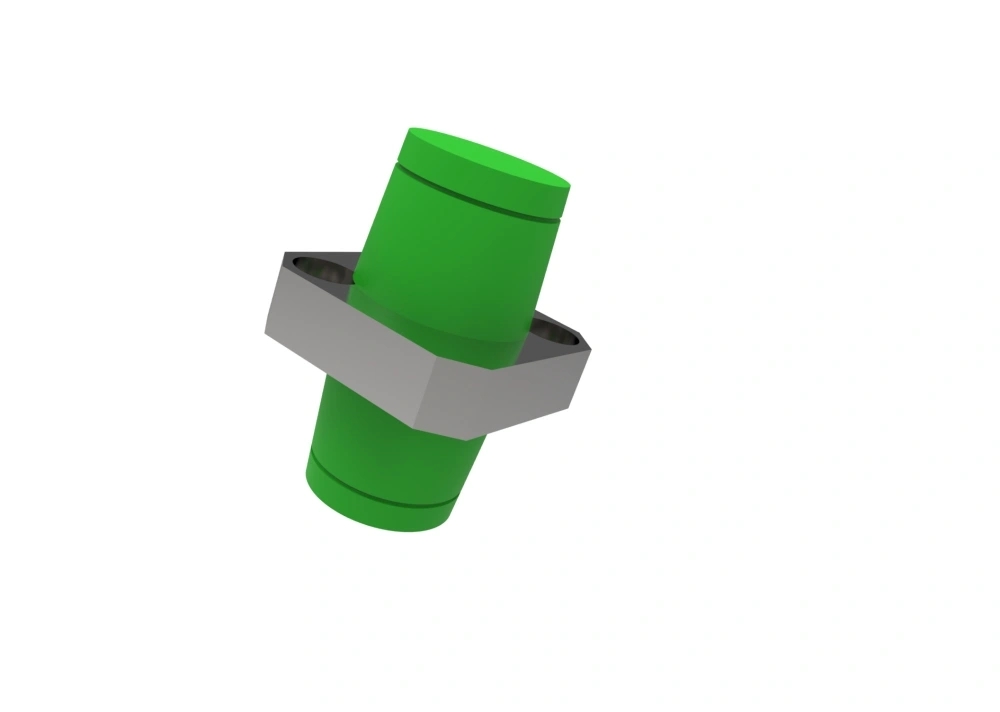Introduction: Ensuring Seamless Fiber Optic Connections

Fiber Optic Adapter APC, also known as Angled Physical Contact Adapter, plays a critical role in connecting and aligning fiber optic cables in optical networks. With its specialized angled end-face, it ensures maximum signal transfer efficiency and minimizes reflection and insertion loss.
Advantages of Fiber Optic Adapter APC
Fiber Optic Adapter APC offers several key advantages over traditional fiber optic adapters:
1. Enhanced Signal Performance
The angled end-face of Fiber Optic Adapter APC significantly reduces signal reflection, resulting in improved signal quality and performance. This makes it ideal for high-speed data transmission applications.
2. Low Insertion Loss
The precise alignment mechanism in Fiber Optic Adapter APC ensures minimal signal loss during transmission, contributing to overall network reliability and data integrity. This is particularly crucial in long-distance communication systems.
3. Reliable and Secure Connection
Fiber Optic Adapter APC's high precision alignment ensures a stable and secure connection between fiber optic cables. It eliminates potential fluctuations and disruptions, making it suitable for critical applications such as telecommunication, data centers, and medical equipment.
Types of Fiber Optic Adapter APC
Fiber Optic Adapter APC comes in various types, catering to the specific needs of different optical network configurations. Some common types include:
1. SC/APC Adapter
This type of Fiber Optic Adapter APC is widely used in telecommunications and cable TV networks. It features a square-shaped connector and provides a secure connection for SC fiber optic cables.
2. LC/APC Adapter
LC/APC Adapter is commonly found in data centers and enterprise networks. It has a small form factor and supports high-density applications. It is compatible with LC fiber optic cables.
3. FC/APC Adapter
FC/APC Adapter is popular in industrial and military applications due to its rugged design. It offers a reliable connection for FC fiber optic cables.
Installation and Maintenance
Proper installation and regular maintenance are essential to maximize the performance and lifespan of Fiber Optic Adapter APC:
1. Cleaning and Inspection
Prior to installation, it is crucial to clean the fiber optic cables and the adapter end-faces using appropriate cleaning tools and solutions. Routine inspection ensures any dirt, dust, or damage is promptly detected and addressed.
2. Precise Alignment
During installation, align the fiber optic cables accurately with the adapter, ensuring a perfect connection for optimal signal transmission. Avoid excessive force that may damage the adapter or cables.
3. Regular Testing
Periodic testing using specialized equipment helps identify any loss or degradation in signal quality. This allows for timely maintenance and replacement, minimizing downtime and ensuring uninterrupted network performance.
Conclusion
Fiber Optic Adapter APC is a vital component in optical networks, providing reliable, high-performance connections. With its enhanced signal performance, low insertion loss, and secure connection, it is the preferred choice for demanding applications in various industries. By following proper installation and maintenance practices, the longevity and efficiency of Fiber Optic Adapter APC can be maximized, ensuring seamless data transmission and network reliability.



